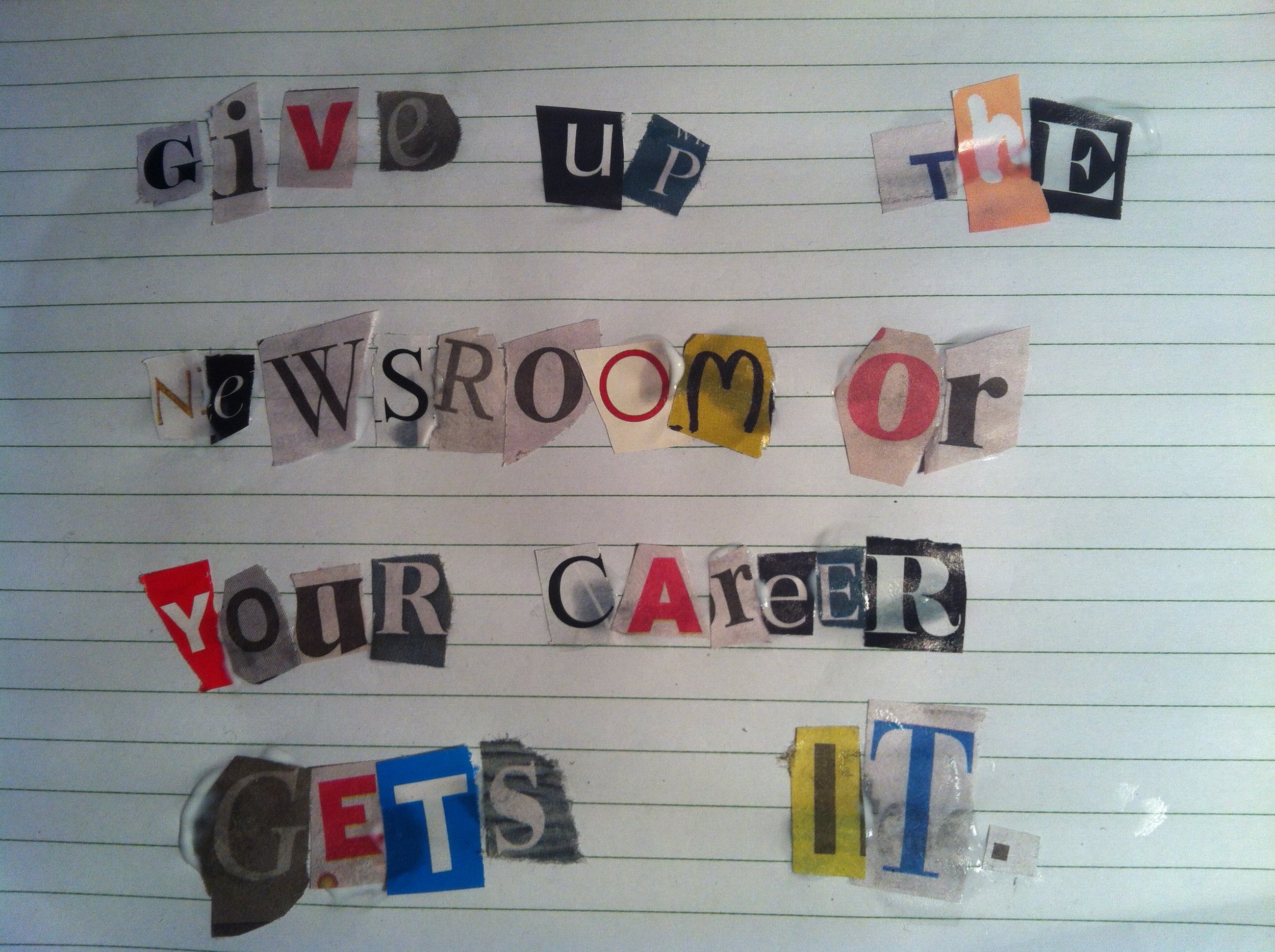Last year I went to see a panel discussion at the Wheeler Centre and walked out feeling miserable. I expect a bit of melancholy after a sad film. But after a panel discussion...? Not so much. The panelists had a jaunty chat about newsrooms – full of anecdotes and great scoops. For the most part I was enraptured. My mind’s eye cast their characters with Robert Redford, Dustin Hoffman, Cary Grant and Rosalind Russell. My props department furnished their newsrooms with Hollywood sets. I saw rows of typewriters, rotary telephones, moody lights and victorious moments.
My reverie had been sustained by fictions – that in itself should have been discouraging. But I’m a relatively practical person. I believe that if you don’t ask, you don’t get. So next I pondered how I might get into a real newsroom. Who did I know who could take me to one? Could I convince an editor to let me hang around for a while? For a good portion of the panel discussion I was dead serious about trying to get some experience in a newsroom. And then I realised… these newsrooms don’t exist any more.
It’s not as if I didn’t know this on some level. When I left my fulltime job to pursue a freelance writing career I knew I wouldn’t be a ‘reporter’ (or even a ‘journalist’). I knew I’d be alone at my desk when I wasn’t out researching. I knew I’d be sending pitches into the world with very few returns (successful or otherwise). Plus, my previous career was in digital media – so I knew the writing was on the ‘website’. I love getting published online because I get instant feedback from readers. Yet I felt an absolute loss that night. Great writing is most important, but what use was great writing when all I knew about publishing was now in flux?
It wasn’t just that new media had changed advertising models and thus affected budgets (and sizes) of newsrooms. In that panel discussion I realised that I had completely missed the boat as far as traditional publishing models went. I always presumed that I would be pitching to editors, and that even though the delivery formats might change, there would be venues (more than ever) for the kind of work I want to produce (non-fiction features).
I don’t believe that there are fewer readers out there (there are more). I don’t believe that citizen journalism heralds the end of professional writing. Nor do I believe that search engines negate the need for an ‘editorial package’. But in acknowledging the death of the traditional newsroom that night, I came to understand that if the newsroom had gone, then maybe the models on which I hoped to publish were gone too.
That certainly won’t stop me from writing long form (creative or narrative) non-fiction pieces. But it has made me wonder how my fellow emerging writers and I will get to our readers in the new publishing paradigm. And it has made me ask, What’s the future of long form? What do you think?


